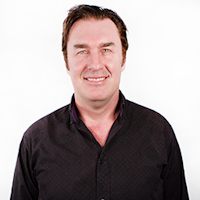Giving Back, and its importance
The word ‘success’ is defined as the accomplishment of a goal, and may involve the attainment of fame, position, wealth or respect. Success though, is also the fulfilment of a greater purpose, where the lives of others are immeasurably improved.
Investors have many ways they can fulfill this greater purpose, whether it’s donating to a charity, volunteering, mentoring, or actively helping others. The list of what can be done is literally endless.
Giving back, is a principle that is close to the hearts of Warren Buffett and Charlie Munger.
At Berkshire Hathaway
Warren Buffett doesn’t measure success in dollars. Despite his wealth, he lives in a humble house and drives a humble car, and in 2006 pledged to give more than 99% of his wealth to charity. Buffett has said that he doesn’t want to be remembered for being rich but would be flattered to see his tombstone mention the word ‘teacher’.
Inspired by Benjamin Franklin, Charlie Munger’s reason for becoming wealthy was so that he too could make a meaningful contribution to humankind. Munger said, ‘I always cared more about being useful than dying rich’.
Munger has said that he feels guilt about making so much with ‘soft white hands’, and thus has tried to ‘atone’ for this by sharing his wisdom and performing charitable acts.
Munger has served on the board of trustees at Harvard-Westlake school for 40 years, and as chairman of the Hospital of the Good Samaritan in Los Angeles, donating tens of millions to each. He has also donated millions to schools, universities and libraries in California and Michigan.
In Sport
There are countless examples of ‘giving back’ in sport.
One example is Cathy Freeman, who had a famous victory winning the 400m gold medal at the 2000 Sydney Olympics.
Cathy not only inspired a generation of young Australians, but in 2007 set up the Cathy Freeman Foundation (now called the Community Spirit Foundation) which helps indigenous children secure a full education.
Another great example of someone who is giving back is former Essendon AFL footballer and Melbourne coach Neale Daniher. In 2013, Neale was diagnosed with Motor Neurone Disease (MND) and has since been an active campaigner in raising awareness and money for scientific research into MND. He has been recognised with an Order of Australia award for his advocacy, public education and fundraising initiatives. Since 2014, Neale and his team of support staff and volunteers, have raised over $55m from a generous public, for research into MND.
Personal Note
A couple of years ago I was involved with my local community in Chirnside Park, Melbourne, attempting to stop the development of 25 acres (10.2 hectares) of local native bushland into housing.
The land was home to an abundance of Australian native birds and animals, and the creek that meandered through this bushland, Brushy Creek, also held great significance as it was the creek that the great Indigenous leader William Barak was born close to.
After six months of hard work, and a strong showing at the local council hearing, we won, and the land was saved.
How to Give Back
There are many ways we can give back to the community. Here are four:
- Volunteer. There are many community roles that need volunteers to work a day (or even a few hours) a week. There are a number of websites that advertise volunteer roles including GoVolunteer and the Seek Volunteer website.
- Mentor. Look at programs that may give you the opportunity to mentor another person.
- Next Generation. Think about the issues that will affect the next generation and look at ways you can help make a difference today. One example is getting involved in ways to help the environment, such as recycling, planting trees, or protecting native wildlife.
- Local Council. Find out what’s going on at your local council. You may even want to join a local community group, which is a great way to meet new people while helping the local community.
Frequently Asked Questions about this Article…
Success for investors goes beyond financial gains and includes fulfilling a greater purpose by improving the lives of others. This can be achieved through charitable donations, volunteering, mentoring, or actively helping others in various ways.
Warren Buffett and Charlie Munger view giving back as an essential part of their success. Buffett has pledged to donate more than 99% of his wealth to charity, while Munger focuses on being useful and has donated millions to educational and healthcare institutions.
Yes, Cathy Freeman and Neale Daniher are notable examples. Freeman inspired many by winning a gold medal and established a foundation to help indigenous children. Daniher, diagnosed with MND, has raised over $55 million for research and awareness.
Everyday investors can give back by volunteering, mentoring, addressing environmental issues, and participating in local council activities. These actions help improve the community and create a positive impact.
Volunteering is valuable because it allows individuals to contribute their time and skills to community roles that need support. It can be as simple as dedicating a few hours a week to make a significant difference.
Mentoring benefits the mentor by providing a sense of fulfillment and the opportunity to share knowledge, while the mentee gains guidance, support, and valuable insights that can help them grow personally and professionally.
Local councils often organize community initiatives and provide platforms for residents to get involved in local issues. Joining a community group through the council can help individuals meet new people and contribute to local development.
Investors can contribute to environmental sustainability by engaging in activities like recycling, planting trees, and protecting native wildlife. These efforts help preserve the environment for future generations.
















